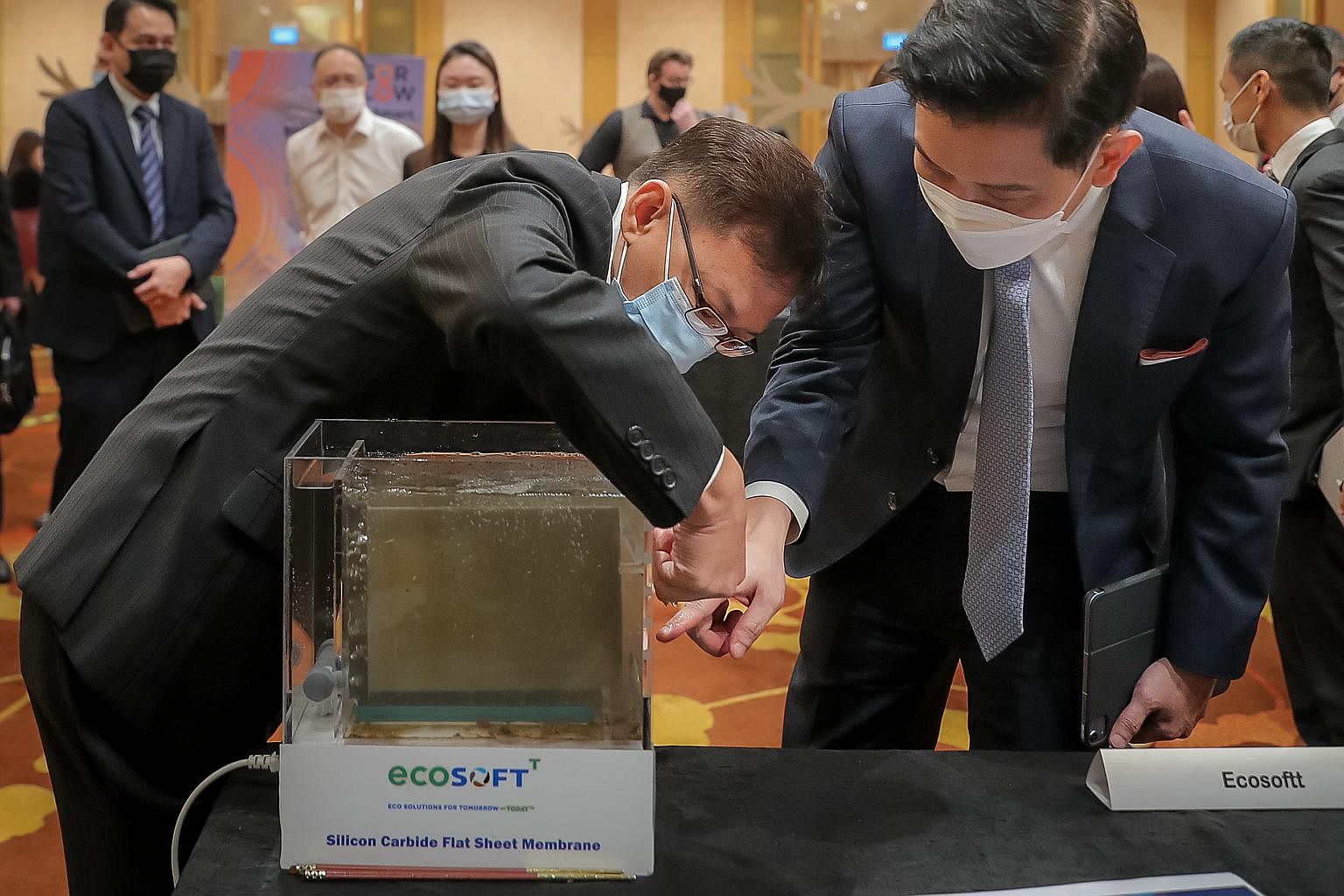Aim for hotels in S'pore to achieve net-zero emissions by 2050
Sign up now: Get ST's newsletters delivered to your inbox
SINGAPORE - Hotels here have been urged to recycle food waste and install solar panels and water meters for conservation, among other measures, as part of the industry's first green plan to meet the larger goals of achieving net-zero emissions by 2050.
They should start to track carbon emissions by next year and reduce them by 2030.
The targets, outlined in the Hotel Sustainability Roadmap launched on Monday (March 21), have been set by the Singapore Hotel Association and Singapore Tourism Board (STB). The road map is believed to be the first of its kind in the world.
Speaking at the launch at the Hotel Sustainability Conference and Marketplace that took place at Sands Expo and Convention Centre, Minister of State for Trade and Industry Alvin Tan said the road map is meant to outline strategies for the hotel industry, and also align sustainability efforts across hotels for greater impact.
A green hotel, for example, is one that is built with sustainable materials, deploys smart automated solutions to optimise resources and influences hotel guests to be environmentally-conscious travellers.
"This is not merely a pipe dream made up of far-fetched ideas. This can be a reality across all hotels here in Singapore," said Mr Tan.
Another aim set out in the road map is for 60 per cent of hotel rooms to attain internationally recognised hotel sustainability certifications by 2025.
Four focus areas have been identified in the road map to ensure that the hotels' sustainability efforts will result in impactful environmental outcomes.
These are: water conservation, waste management, recycling and the circular economy, which can involve practices such as using artificial intelligence to power food waste solutions.
Other focus areas include energy conservation, such as by using solar panels, and sustainable sourcing and procurement, such as by using locally sourced produce.
The road map also sets out strategies and initiatives to help hotels reach these targets.
For example, they can tap STB's funds to support their sustainability initiatives, or partner Enterprise Singapore through the Sustainability Marketplace.
The marketplace, which was also launched on Monday, has roped in about 20 companies to provide solutions to help hotels become more sustainable.

Going green can present significant economic opportunities for the tourism sector, allowing hotels to gain a competitive advantage to thrive, Mr Tan said.
For example, they can cut costs by managing resources more efficiently, and see greater consumer demand from like-minded customers.
One key trend that has emerged from the pandemic is the rise of the "conscious traveller".
More than 80 per cent of travellers now believe that sustainable travel is important, and are willing to pay more for sustainable accommodation options, said Mr Tan.
Some hotels have already started greening their operations, including Marina Bay Sands.
Efforts to go green need not always require heavy investment in equipment or infrastructure. Smaller investments, such as using energy-efficient light bulbs, can also count, he said.
But cost still remains a challenge for a hotel when implementing new solutions.
Mr Gino Tan, country general manager for The Fullerton Hotels and Resorts, said: “There is going to be significant costs in our purchasing, especially when we move towards biodegradable products, whether it is in-room amenities or sourcing for sustainable food.”
Biodegradable items tend to cost significantly more than disposables because of the raw materials used and how they are processed.
The hotel chain aims to install drinkable water dispensers in guest rooms, as opposed to providing disposable cartons of water.
Other challenges are convincing stakeholders of the hotel to invest in sustainable solutions and finding sustainable products that are of quality, said Ms Wee Wei Ling, executive director of sustainability partnerships, lifestyle and asset at Pan Pacific Hotels Group.
But the group will put in sustainability features for its new hotel, Pan Pacific Orchard, opening next year. This includes using solar panels to power lighting for its indoor gardens.
Others, like the Grand Hyatt Singapore, will also be setting up a laundry water recycling plant in the hotel, which can reduce water usage by about 30 per cent.
Some hotels have already started greening their operations, including Marina Bay Sands.
Efforts to go green need not always require heavy investment in equipment or infrastructure. Smaller investments, such as using energy-efficient light bulbs, can also count, he said.
But cost still remains a challenge for a hotel when implementing new solutions.
Mr Gino Tan, country general manager for The Fullerton Hotels and Resorts, said: “There is going to be significant costs in our purchasing, especially when we move towards biodegradable products, whether it is in-room amenities or sourcing for sustainable food.”
Biodegradable items tend to cost significantly more than disposables because of the raw materials used and how they are processed.
The hotel chain aims to install drinkable water dispensers in guest rooms, as opposed to providing disposable cartons of water.
Other challenges are convincing stakeholders of the hotel to invest in sustainable solutions and finding sustainable products that are of quality, said Ms Wee Wei Ling, executive director of sustainability partnerships, lifestyle and asset at Pan Pacific Hotels Group.
But the group will put in sustainability features for its new hotel, Pan Pacific Orchard, opening next year. This includes using solar panels to power lighting for its indoor gardens.
Others, like the Grand Hyatt Singapore, will also be setting up a laundry water recycling plant in the hotel, which can reduce water usage by about 30 per cent.



